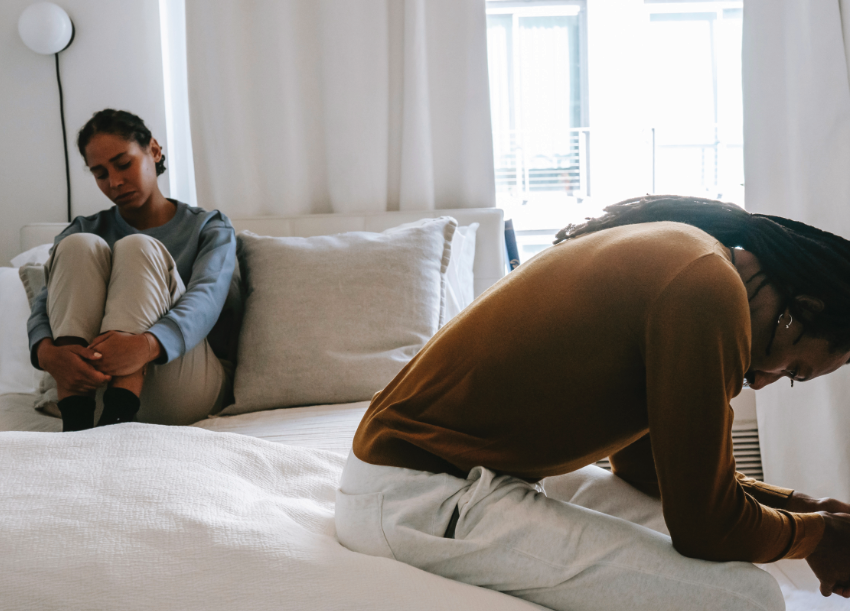
When you first start dating someone new, you’re bound to feel some anxiety (and all the butterflies). The feelings of excitement and lust can also add to the touch of anxiety.
Often many people question or doubt their partner’s feelings towards them. Many times people began to ask themselves questions regarding their significant other.
Is he really into me, or is he just waiting until someone better comes along? Is she still texting with her ex even though she told me they were completely over? What did he mean when he said he loves that I’m not obsessed with my job?
This is totally normal, and will hopefully fade over time as you build a foundation of trust. But if you can never shake off those feelings that something bad is going to happen, that this loving relationship is inevitably going to end in tears no matter how well everything seems to be going, you may be experiencing relationship anxiety.
Healthline best describes relationship anxiety as the constant feelings of worry, insecurity, and doubt that can pop up in a relationship, even if everything is going relatively well.
Married not perfect blog advises individuals in relationships states that anxiety in a relationship looks like the following and urges to be aware of:
- Doubting your partner’s feelings for you
- Only showing the parts of yourself that you think they’ll accept
- Fear of not being good enough for your partner
- Second guessing yourself
- Having nightmares of losing them
- Fear they’ll leave you
- Feeling you are “bothering” your partner
- Doubting long-term compatibility
How to overcome it:
Maintain your identity
As you and your partner become closer, you might find key parts of your identity, individuality, or even your independence shifting to make room for your partner and the relationship.
This often happens naturally as you and your partner become a couple. And while some changes — such as getting used to sleeping with the window open — may not have a big impact on your sense of self, others might.
Losing your sense of self in the relationship or changing to accommodate what you think your partner wants doesn’t help either of you.
Practice good communication
Relationship anxiety often comes from within, so it may have nothing to do with your partner.
But if something specific is fueling your anxiety — whether it’s playing with their phone when you talk or not wanting to visit your family for the holidays — try bringing it up in a respective and non-accusatory way
Avoid acting on your feelings
Yes relationships can be challenging at times but it is always best to think relationally and avoid acting in the moment.
Talk to a therapist
If you’re having a hard time working through relationship anxiety on your own, talking to a therapist can help you get some clarity. It’s also a great way to learn how to cope with the effects of relationship anxiety.
For relationship anxiety, a therapist who works with couples can be particularly helpful.
They can help you both:
- understand your own and each other’s feelings and underlying needs
- hear each other’s experiences without judgment or defensiveness
- show you care in ways that will soften or calm the anxiety




